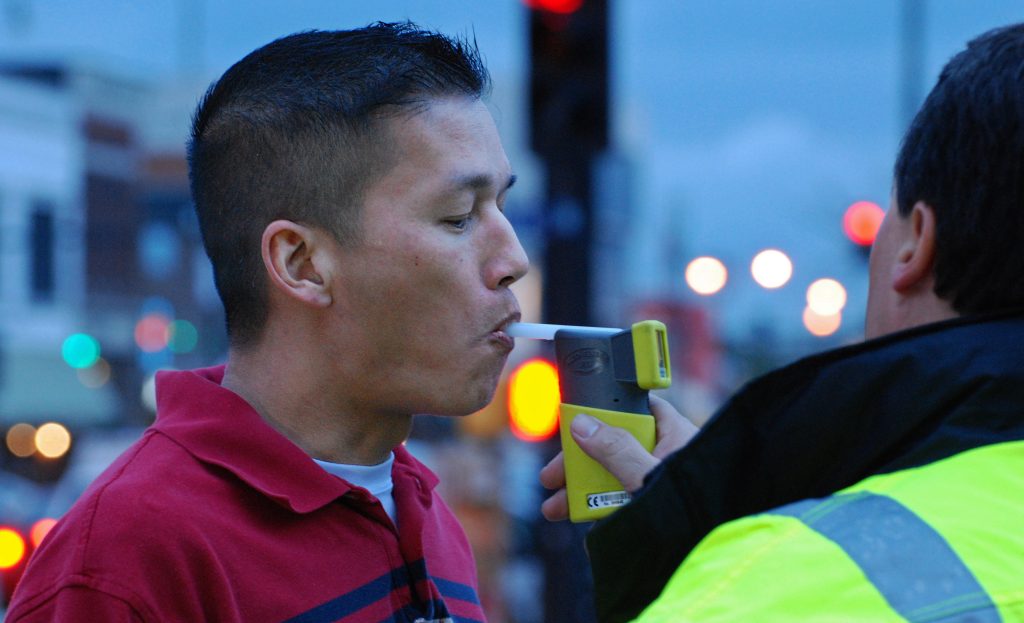The new laws that will affect the lives of Ontarians in 2019
Posted December 31, 2018 1:54 pm.
Last Updated December 31, 2018 1:58 pm.
This article is more than 5 years old.
From a minimum wage freeze, to expanded marijuana sales — changes are in store for Ontarians in 2019.
A slew of new Canada-wide and provincial laws are set to come into effect on January 1, and throughout the year.
Here’s a rundown of some of the key changes that could affect your life.
January 1, 2019
Greenhouse Gas Pollution Pricing Act (Canada)
- For provinces that either did not adopt Prime Minister Trudeau’s carbon pricing system or failed to develop their own pricing plan—that’s Ontario, New Brunswick, Manitoba and Saskatchewan—the legislation institutes a fee on carbon pollution beyond a certain threshold for larger industrial facilities.
Budget Implementation Act, 2018 (Canada)
- The small business tax rate is reduced from 10 per cent to 9 per cent.
Personal Information Protection and Electronic Documents Act (Canada)
- Requires organizations to obtain “meaningful consent” for the collection, use and disclosure of personal information. Canada’s Privacy Commissioner has detailed necessary practices including making information collection easily understandable and allowing consumers to opt-in or opt-out.
Ministry of Transportation (Ontario)
Changes to the Highway Traffic Act include:
- Increasing penalties to $250 (first offence), $350 (second offence) and $450 (third and subsequent offence) for having a blood alcohol concentration that is 0.05 or higher, failing a roadside sobriety test or violating the zero tolerance requirements for young, novice and commercial drivers.
- Introducing a $550 penalty for refusing to take a drug or alcohol test if you register a blood alcohol concentration over 0.08 or if a drug recognition evaluator determines that you are impaired.
- Increasing the Driver’s Licence Reinstatement fee from $198 to $275 when getting a suspended licence back.
- Setting higher fines and increasing demerit points for repeat offences, and driver’s licence suspensions for distracted driving offences to ensure road safety. (Source: Province of Ontario)
Making Ontario’s Roads Safer Act (Canada)
- Anyone convicted of distracted driving will automatically have their driver’s licence suspended for three or 30 days. ‘Distraction’ ranges from holding an electronic device in your hands to eating.
Ministry of Labour (Ontario)
- Under the Making Ontario Open for Business Act key amendments to the Employment Standards Act will come into force including repealing Personal Emergency Leave and replacing it with three unpaid days for personal illness; two unpaid bereavement leave days; and three unpaid days for family responsibility leave and maintaining the minimum wage rate at $14 per hour until 2020, and then increasing it by the rate of inflation.
Safer Ontario Act (Ontario)
- Recognizes police forces in Ontario First Nations’ territory as fully-fledged and guarantees support, standards and resources to undertake their work.
Fish and Wildlife Conservation Act (Ontario)
- Requires hunters to report hunting activity and “harvests” and allows the on-line purchase of hunting dog licenses.
Collection and Debt Settlement Services Act (Ontario)
- Requires collection agencies with ten or more collectors to record certain calls relating to their activities; those not in compliance subject to fine.
Employment Standards Act (Ontario)
- Excludes those working in the film and television industry from compensation for work shifts cancelled within 48 hours and also denies those employees the right to refuse unscheduled work with less than four days notice.
Child and Family Services Act (Ontario)
- Requires new complaint and licensing procedures for child welfare residences as well as clinical oversight and approval of mechanical restraints in secure treatment programs.
Ministry of Community Safety and Correctional Services (Ontario)
- Amendments to the Coroner Act will require the Chief Coroner to publicly explain why a discretionary inquest was not held, for incidents that were investigated by the Special Investigations Unit (SIU). A regulation under the act has been amended to set out what information must be included in the Chief Coroner’s explanation of why a discretionary inquest was not necessary, e.g., gender, race, approximate location of incident.
Ministry of Finance (Ontario)
- The new Low-Income Individuals and Families (LIFT) tax credit will be effective January 1, 2019. It will provide low-income and minimum wage workers up to $850 in Ontario Personal Income Tax relief and couples up to $1,700 when they file their 2019 tax returns.
January 15, 2019
Safe Food for Canadians Act (Canada)
- Significantly expands the list of individuals and firms required to hold a Canadian Food Inspection Agency license, a ‘food safety preventive control plan’ as well as a food tracking and tracing process.
March 1, 2019
Modernizing Ontario’s Municipal Legislation Act (Ontario)
- Among various changes, makes codes of conduct mandatory for members of council and local boards. The Act also expands the role of Integrity Commissioners to advise and educate politicians and board members regarding conduct and conflict of interest.
April 1, 2019
Federal-Provincial Fiscal Arrangements Act (Canada)
- Allows Canada Health Transfer deductions to be reimbursed when provinces and territories have taken the steps necessary to eliminate extra-billing and user fees in the delivery of public health care.
Budget Implementation Act, 2017 (Canada)
- Eligible veterans and Canadian Armed Forces members will begin to receive Pension for Life, a monthly payment to compensate ill or injured soldiers for pain and suffering resulting from service-related disabilities.
An Act to amend the Canada Pension Plan, the Canada Pension Plan Investment Board Act and the Income Tax Act (Canada)
- Annual CPP contributions will increase over the next seven years. An individual with earnings of $54,900 will contribute about an additional $75 per year in 2019.
Greenhouse Gas Pollution Pricing Act (Canada)
- Under federal legislation, a charge on fossil fuels paid by producers and distributors goes into effect for provinces that haven’t passed their own legislation. In Yukon and Nunavut fuel charges begins July 2019
An Act to implement the Comprehensive and Progressive Agreement for Trans-Pacific Partnership (Canada)
- Among the impacts of this trade agreement with Australia, Brunei, Chile, Japan, Malaysia, Mexico, New Zealand, Peru, Singapore and Vietnam is a lowering of the Japanese tariff on Canadian fresh beef to 26.6 per cent from a pre-pact level of 38.5 per cent.
Cannabis Act (Ontario)
- Private retailers can now sell marijuana in bricks-and-mortar shops.
Occupational Health and Safety Act (Ontario)
- Harassment and violence are now defined as workplace hazard that affect health and safety. Workplaces with 20 or more employees must develop a code of practice on managing violence in the workplace.
June 21 or September 30, 2019
An Act to amend the Bills of Exchange Act, the Interpretation Act and the Canada Labour Code (National Indigenous Peoples Day) (Canada)
- Federal NDP member Georgina Jolibois’ private members bill will create a statutory holiday marking Canada’s residential school legacy. Federal government expected to announce choose between the two dates in time for 2019.
July 1, 2019
Canada Business Corporations Act (Canada)
- The elimination of bearer shares and bearer share warrants or options. Bearer shares allow for complete anonymity of share ownership and transfer. Changes won’t impact existing bearer shares.
Environmental Protection Act (Canada)
- Sale of toiletries containing microbeads – miniature manufactured solid plastic particles – prohibited except in natural health products or non-prescription drugs. Microbeads, often used in skin cleansers, are characterized as toxic and can harm aquatic organisms
August 1, 2019
Motor Vehicle Safety Act (Canada)
- Expands requirements for truck tractors manufactured in Canada to have electronic stability control systems. The technology is designed to reduce rollover and loss-of-control crashes.
October 1, 2019
Construction Lien Amendment Act (Ontario)
- The legislation sets out timelines for payment to building contractors and subcontractors in order to significantly reduce payment delays. Owners will have 28 days to pay a contractor, while contractors must pay subcontractors within seven days of receiving their payment.
October 17, 2019
Cannabis Act (Canada)
- The sale of cannabis edible products and concentrates are legal “no later than 12 months following” Canada’s Cannabis Act coming into force on October 17, 2018.
TBD 2019
Trademarks Act (Canada)
- Among amendments are the registration term for trademarks to be reduced from 15 years to 10 years and the definition of a trademark broadened to include nontraditional items like smells, tastes, textures, and moving images
Transportation Modernization Act (Canada)
- Expected to come into force Summer 2019, will approve an air passenger ‘bill of rights’ guaranteeing consistent protections expected to include minimum compensation for flight delays and lost luggage as well as clear guidelines for tarmac delays.










